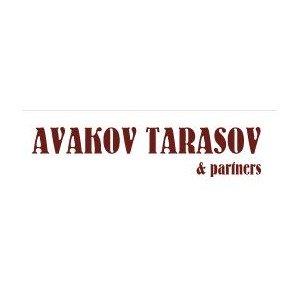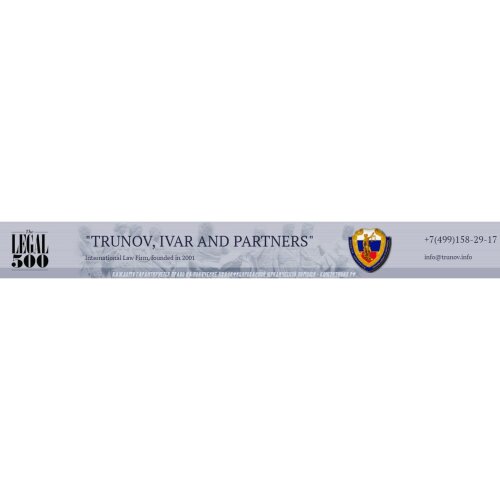Best Art & Cultural Property Law Lawyers in Russia
Share your needs with us, get contacted by law firms.
Free. Takes 2 min.
Or refine your search by selecting a city:
List of the best lawyers in Russia
About Art & Cultural Property Law in Russia
Art & Cultural Property Law in Russia encompasses the legal issues concerning the creation, preservation, sale, and ownership of art and cultural artifacts. This field of law aims to protect Russia's rich cultural heritage, which includes significant works of art, historical objects, buildings of cultural significance, and other cultural properties. The legal framework is designed to safeguard these assets against illegal export, damage, and unauthorized reproduction. In Russia, art and cultural property laws are influenced by both national regulations and international conventions, such as the UNESCO Convention on the Means of Prohibiting and Preventing the Illicit Import, Export and Transfer of Ownership of Cultural Property.
Why You May Need a Lawyer
Several situations may necessitate seeking legal advice in the field of Art & Cultural Property Law in Russia:
- Purchasing or Selling Art: Complex issues like provenance, authenticity, and export permits often require legal expertise.
- Art Theft: In cases of stolen or lost art, legal guidance is vital for navigating restitution processes or claims.
- Loans and Exhibitions: Legal assistance is necessary to draft and review agreements related to lending art for exhibitions, both domestically and internationally.
- Cultural Heritage Preservation: Legal advice may be needed for issues related to the conservation of cultural sites or artifacts.
- Cultural Property Disputes: Resolving ownership and repatriation disputes often involves complex legal proceedings.
Local Laws Overview
Key aspects of the legal framework governing Art & Cultural Property Law in Russia include:
- The Federal Law on Export and Import of Cultural Property: This law regulates the movement of cultural items across national boundaries, requiring permits for any exports.
- The Law on Objects of Cultural Heritage: Protects historical and culturally significant sites and mandates their maintenance and preservation.
- Intellectual Property Laws: These laws cover copyright issues related to art reproduction and intellectual property rights of creators.
- Criminal Code of the Russian Federation: Deals with offenses related to the illegal appropriation and destruction of cultural objects.
Frequently Asked Questions
What is considered a cultural property in Russia?
Cultural property in Russia includes artistic, archaeological, ethnographic items, and architectural monuments that hold historical, cultural, or artistic value.
How do I obtain an export permit for art in Russia?
You must apply for an export permit through the Ministry of Culture, providing documentation proving ownership and cultural assessment details.
Are there any international treaties affecting art law in Russia?
Yes, Russia is a signatory to several international treaties, including the UNESCO Convention, affecting the import and export of cultural property.
What should I do if I find a new artifact on my property?
You are required to report the find to the local authorities as it may be protected under heritage preservation laws, subject to state ownership.
Is art theft a common issue in Russia?
While not rampant, art theft does occur, and Russian laws rigorously address theft and illegal trade of cultural items.
Can modern artwork be protected under cultural property laws?
Yes, contemporary works may be protected if they are adjudged to have significant cultural, historical, or artistic importance.
Are reproductions of famous Russian art legal?
Reproductions are legal provided they comply with copyright laws and do not infringe on the intellectual property rights of artists or their estates.
What are the penalties for illegally exporting art from Russia?
Penalties can include fines, confiscation of the items, and in severe cases, imprisonment.
Can foreigners own cultural property in Russia?
Foreigners can own cultural property, but transactions and transfers must comply with Russian regulations, particularly regarding exports.
How is cultural property valued for legal purposes?
Valuation is typically conducted by certified appraisers who consider the item's historical significance, condition, and market demand.
Additional Resources
For further assistance and information, consider the following resources:
- Ministry of Culture of the Russian Federation: A key governmental body overseeing cultural property regulations.
- ICOM Russia (International Council of Museums): Offers resources and events related to museum and cultural heritage matters.
- Russian Association of Appraisers: Provides certified valuation services for art and cultural properties.
- Russian Federal Customs Service: Involved in overseeing the export and import of cultural property.
Next Steps
If you need legal assistance with Art & Cultural Property Law in Russia, consider taking the following steps:
- Consult with a Legal Expert: Seek out a lawyer with experience in art and cultural property law to discuss your specific situation.
- Gather Documentation: Collect any relevant records, such as provenance, ownership papers, and any past valuations.
- Stay Informed: Keep current with the latest developments and changes in the field through professional publications and seminars.
- Contact Relevant Authorities: Engage with the appropriate governmental or organizational bodies for advice specific to your case.
Lawzana helps you find the best lawyers and law firms in Russia through a curated and pre-screened list of qualified legal professionals. Our platform offers rankings and detailed profiles of attorneys and law firms, allowing you to compare based on practice areas, including Art & Cultural Property Law, experience, and client feedback.
Each profile includes a description of the firm's areas of practice, client reviews, team members and partners, year of establishment, spoken languages, office locations, contact information, social media presence, and any published articles or resources. Most firms on our platform speak English and are experienced in both local and international legal matters.
Get a quote from top-rated law firms in Russia — quickly, securely, and without unnecessary hassle.
Disclaimer:
The information provided on this page is for general informational purposes only and does not constitute legal advice. While we strive to ensure the accuracy and relevance of the content, legal information may change over time, and interpretations of the law can vary. You should always consult with a qualified legal professional for advice specific to your situation.
We disclaim all liability for actions taken or not taken based on the content of this page. If you believe any information is incorrect or outdated, please contact us, and we will review and update it where appropriate.
Browse art & cultural property law law firms by city in Russia
Refine your search by selecting a city.

















